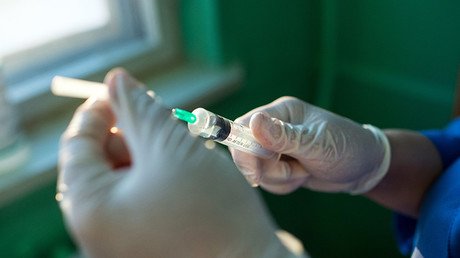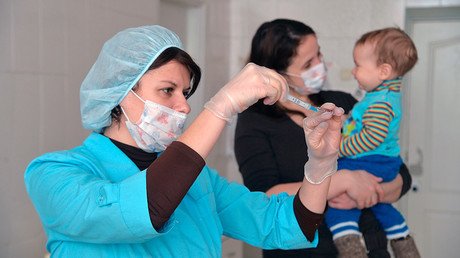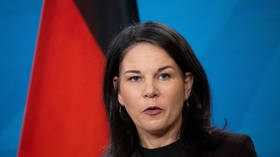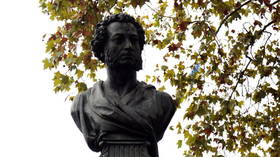'Largest in 30 years' measles outbreak prompts Minnesota officials to request $5mn
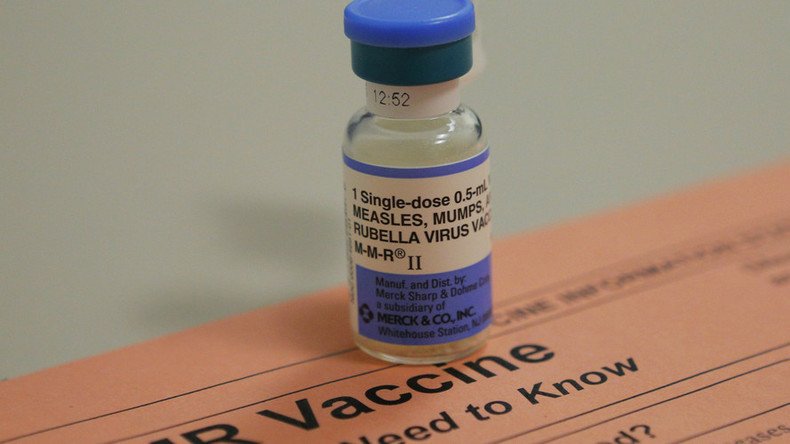
Authorities in Minnesota are seeking $5 million to respond to the largest outbreak of measles in almost three decades, most of which involve unvaccinated Somali-American children.
On Wednesday, Minnesota Health Commissioner Dr. Ed Ehlinger asked state lawmakers for $5 million to address the state’s growing infectious disease crises, which includes “the largest measles outbreak the state has faced in nearly 30 years,” according to a statement obtained by the Post-Bulletin.
A total of 51 measles cases have been confirmed in the counties of Ramsey, Crow Wing and Hennepin, where the state’s largest city Minneapolis is located. Forty-eight of the cases affect children, with 46 affecting Somali-Americans, according to data released by the Minnesota Department of Health (MDH).
Ehlinger has asked state lawmakers to create a public health emergency fund of $5 million in order to “ensure sufficient resources are available for immediate, lifesaving actions to protect Minnesotans from infectious disease outbreaks and other unanticipated public health threats.”
So far this year, the state has spent nearly $3 million responding to measles, tuberculosis and syphilis. Ehlinger warns that the funds can no longer be diverted from “other vital public health services.”
“Significant threats to public health are becoming more frequent and costly,” Ehlinger said. “Minnesotans rightly expect a rapid and effective response to these threats, but current state funds lack the flexibility needed to deal with emergent disease threats.”
Ehlinger stated the proposed public health emergency fund has support from Democratic Governor Mark Dayton.
Last Thursday, when there were 41 measles cases, MDH released a statement, which said the majority of the cases have been spread by unvaccinated people, many of them from the Somali community.
Since 2008, Minnesota’s Somali community, the largest Somali community in the US, has grown more skeptical about vaccines. Much of the disinformation about vaccines in the Somali community comes from British researcher Andrew Wakefield, who first proposed a link between vaccines and autism in a paper which has been widely discredited.
Minnesota #measles outbreak linked to anti-vaccine rhetoric hits 50 cases @dgsomucla@UCLAHealthhttps://t.co/N2ldrQj2jOpic.twitter.com/teUJTuYS2j
— ID News (@InfectDisNews) May 11, 2017
Can the measles vaccine cause autism? The science is clear: NO. https://t.co/H21ao47CNjhttps://t.co/mBaqlbXRup
— MDH (@mnhealth) May 11, 2017
Citing numerous studies on the MMR vaccine, the US Centers for Disease Control and Prevention (CDC) states that “there is no link between vaccines and autism.”
"The most worrisome thing is, it's a completely unnecessary outbreak," said Kris Ehresmann, director of infectious disease control for MDH, according to CNN. "We have a vaccine that can prevent measles, and yet we're seeing this widespread transmission."
Ehresmann emphasized that the outbreak “has nothing to do with being Somali. It's just the sheer fact of being unvaccinated.”
Measles is a highly contagious disease that “if one person has it, 90 percent of the people close to that person who are not immune will also become infected," according to the CDC.
The MDH claims more than 2,500 people have been exposed during the recent outbreak.
“Once measles begins to spread in unvaccinated populations, it can be very difficult to stop,” Ehresmann said in the press release issued last week. “We would not be surprised if we saw additional cases in other parts of the state where there are clusters of unvaccinated people before this is over.”
The measles, mumps, rubella (MMR) vaccine is given to children in two doses, typically the first dose is given to children 12 months old, with a second dose when they are between four to six years old. However, MDH is recommending an accelerated vaccine schedule to deal with the outbreak.
The MDH recommends all children who have not received an MMR vaccine should get the first dose as soon as possible and all adults born in 1957 or later who have never received the MMR vaccine and have never had measles should get the vaccine as soon as possible.
